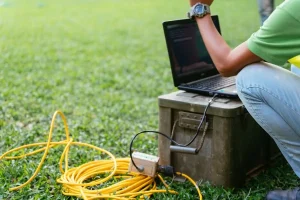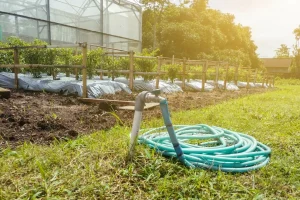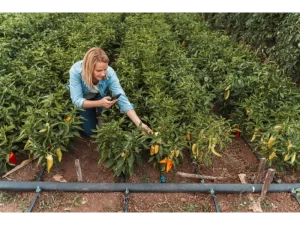Intelligent Irrigation Systems are one of the modern technologies that increase agricultural production efficiency and conserve water resources. These systems can also automatically provide the water needed by plants through sensors. Therefore, water waste can be prevented and optimal irrigation can be achieved. Additionally, soil moisture, temperature, and weather data can be monitored in real time. This allows producers to plan irrigation times correctly. It also saves energy and reduces operating costs. In this way, both economic and environmental sustainability can be supported. Furthermore, smart irrigation systems can be adapted to different agricultural areas and plant types.Therefore, high performance is achieved in all climates. Remote access allows irrigation control via mobile devices, saving time and reducing manual effort. Integration with automatic fertilization optimizes nutrient management, enhancing product quality and maintaining soil fertility.
Contents
- Netafim Smart Irrigation Systems
- Drip Irrigation System
- Netafim Drip Irrigation Filter
- Agricultural Irrigation Systems
- Drip Fertilizers
- Conclusion
- Frequently Asked Questions
Netafim Smart Irrigation Systems
Netafim smart irrigation systems are used to save water and increase productivity in agriculture. These systems can also optimize water distribution by analyzing soil moisture and climate data. This allows producers to easily adjust the amount of water according to the needs of each plant. Furthermore, systems supported by sensor technology can increase efficiency and reduce losses. In this case, unnecessary irrigation can be prevented and energy consumption can be reduced. In addition, remote access is possible thanks to automatic control panels. This way, users can manage irrigation time and amount whenever they want. Furthermore, with integrated fertilization modules, nutrients can reach plant roots evenly. This ensures product quality and higher yield. Netafim smart irrigation systems adapt to various field and greenhouse conditions, enabling sustainable production in any climate. Efficient water use enhances sustainability, productivity, and cost savings, making them highly effective modern agricultural solutions.
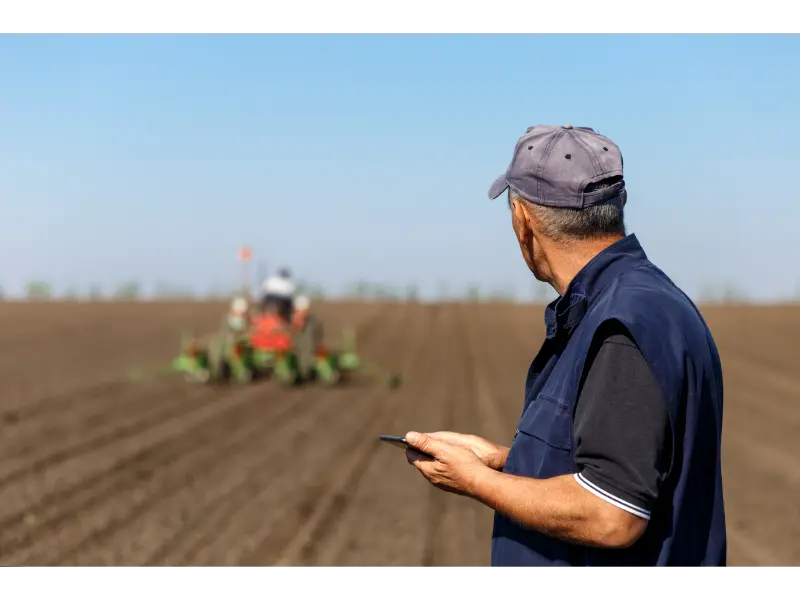
Drip Irrigation System
Drip irrigation systems are a method that increases efficiency by delivering water directly to plant roots. This system also saves water and prevents soil erosion. Therefore, it can be an effective solution, especially in arid regions. Furthermore, drip lines ensure that water reaches each root equally. This minimizes water loss. Furthermore, operating costs can be reduced because energy requirements are low. This makes it an advantageous option for both small and large-scale producers. The system can also be remotely managed by integrating it with automatic control units. This enables savings in time, labor, and water. Furthermore, the drip irrigation system integrates with fertilization equipment to maintain nutrient balance and sustainable growth. It is suitable for fields, greenhouses, and gardens, ensuring efficiency in all climates. Moreover, controlled water use makes it an eco-friendly agricultural method.
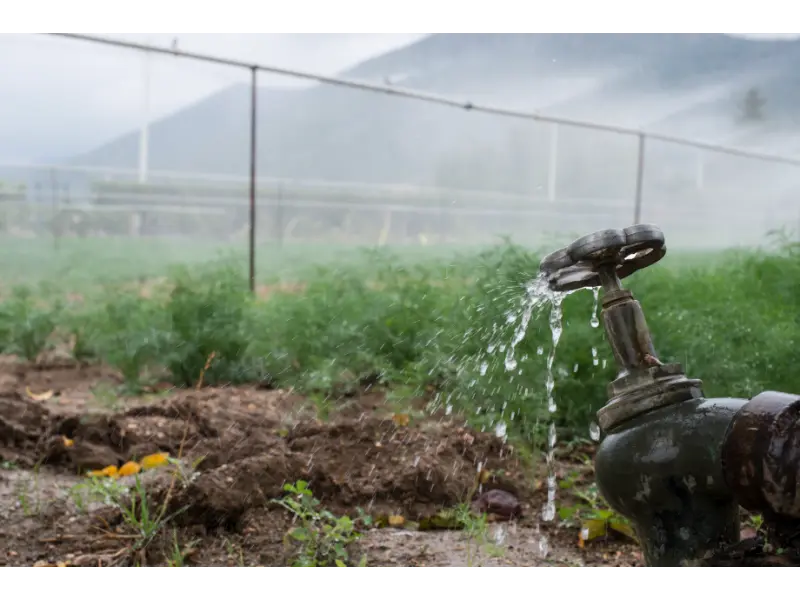
Netafim Drip Irrigation Filter
The Netafim drip irrigation filter is a piece of equipment that enhances system performance by maintaining water cleanliness. Additionally, the filtration system can prevent clogging in pipe lines and balance water flow. Therefore, long-lasting and efficient irrigation can be achieved. Furthermore, the filters can prevent sand, sediment, and particles from reaching plant roots. This preserves irrigation efficiency and reduces maintenance requirements. Furthermore, the automatic cleaning feature allows the system to operate continuously. This enables producers to save on water loss and maintenance costs. The Netafim drip irrigation filter can also be adapted to different flow rates and pressure values. Therefore, it can be used from small gardens to large fields. Its durable material withstands high pressure, ensuring long-term use. Moreover, filtration directly impacts drip irrigation efficiency. Thus, selecting filters by water quality and capacity is essential. The Netafim drip irrigation filter is vital for sustainable, efficient modern agriculture.
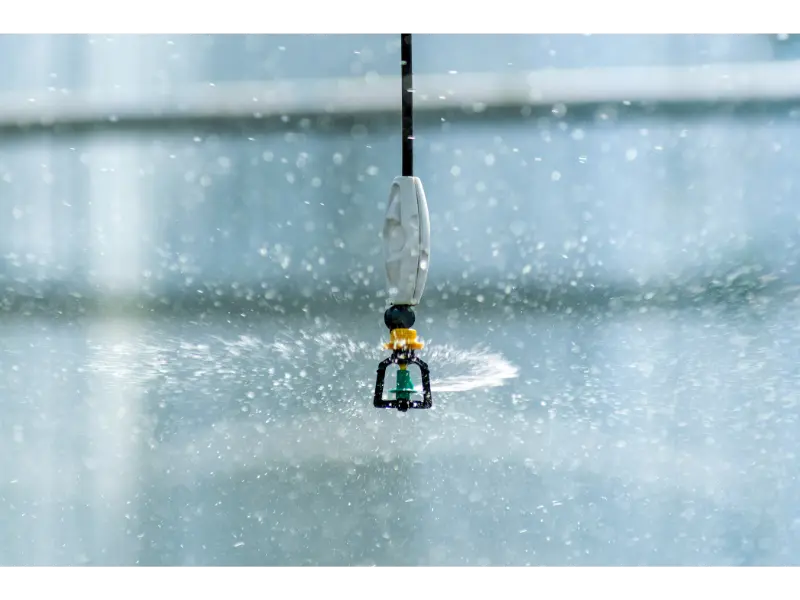
Agricultural Irrigation Systems
Agricultural irrigation systems are technological solutions that meet the water needs of plants at an optimal level. These systems can also increase production quality by ensuring efficient use of water. For this reason, they are widely used in modern agricultural practices. Furthermore, drip, sprinkler, and automatic irrigation systems can be selected according to different field structures. In this case, suitable solutions can be developed for every climate and plant type. Moreover, sensor-supported systems can determine the correct watering time by measuring soil moisture. This prevents water loss and saves energy. Agricultural irrigation systems can also increase producer income by boosting yields. Therefore, they are an important investment for sustainable production. They also support plant nutrition when integrated with fertilization systems, ensuring quality and balance. Furthermore, remote control and automation simplify management, optimizing water use and time. Therefore, agricultural irrigation systems are essential components of modern farming infrastructure.
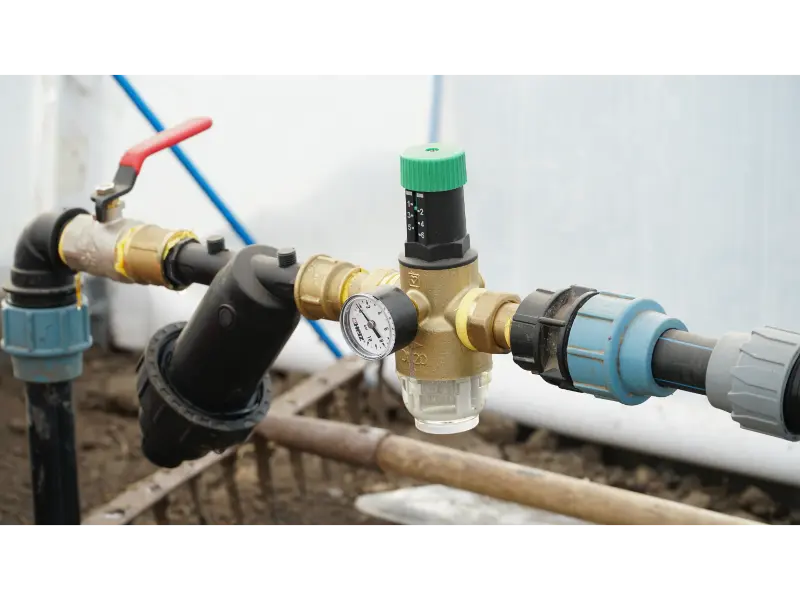
Drip Fertilizers
Drip fertilizers are products used in conjunction with irrigation systems that provide nutrients directly to the plant roots. These fertilizers also mix with water and ensure homogeneous distribution through drip lines. This prevents nutrient loss and enables maximum yield. Furthermore, their fast-dissolving structure allows them to be easily absorbed by the plant. This supports root development and increases growth rate. Drip fertilizers also prevent unnecessary use by offering controlled feeding. This saves both water and fertilizer. Various formulations can be used to create a specific nutrient balance for each plant type. For this reason, they are frequently preferred in fields, greenhouses, and orchards. Furthermore, nitrogen, phosphorus, and potassium ratios can be balanced according to the plant’s needs. This ensures optimal productivity. Drip fertilizers also support environmentally friendly production practices and protect soil health. This allows for both product quality and sustainability to be achieved simultaneously.
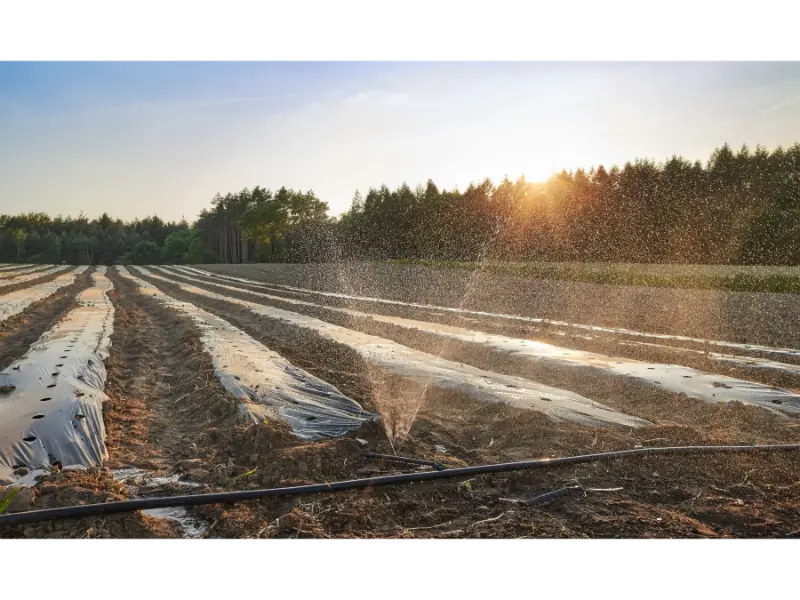
Conclusion
As a result, Smart Irrigation Systems are one of the most efficient and sustainable solutions in modern agriculture. Furthermore, Smart Irrigation Systems can offer significant advantages for both the environment and the economy by ensuring the efficient use of water resources. This allows producers to accurately meet the water and nutrient needs of their crops. Additionally, thanks to sensor-supported control mechanisms, soil moisture, temperature, and weather conditions can be monitored in real time. In this case, irrigation plans can be adjusted according to the most efficient time periods. In addition, energy and labor savings are achieved, and production costs can be significantly reduced. This helps farmers achieve higher product quality and long-term profits. Smart Irrigation Systems integrate with drip, sprinkler, and fertilization systems for full automation, enabling climate adaptation and preventing water waste. They also drive digital transformation, ensuring sustainable and eco-friendly agriculture.
Frequently Asked Questions
How do Smart Irrigation Systems work? Sensors analyze soil moisture, temperature, and weather conditions, enabling automatic irrigation.
Where can Netafim Smart Irrigation Systems be used? They can be used effectively in fields, greenhouses, orchards, and industrial production areas.
Does the Drip Irrigation System save water? Yes, since water is delivered directly to the roots, evaporation and leakage losses can be prevented.
For which products is the Drip Irrigation System most effective? It can provide high efficiency for vegetables, fruit trees, vineyards, and field crops.
Why is the Netafim Drip Irrigation Filter important? The filter system prevents clogging by filtering out sediment and particles in the water.
Do Agricultural Irrigation Systems save energy? Yes, automatic control units can optimize water and energy consumption.
How are Drip Fertilizers applied? Since they are water-soluble, they are mixed into the irrigation water and delivered to the plant roots.
Can Smart Irrigation Systems be controlled manually? Yes, the systems can be easily adjusted via remote access or manual mode.
How often should the Drip Irrigation Filter be cleaned? Depending on water quality, it is generally recommended to clean it weekly or every two weeks.
Is the investment cost of Smart Irrigation Systems high? There is an initial cost, but it can be recouped quickly through water and energy savings.




